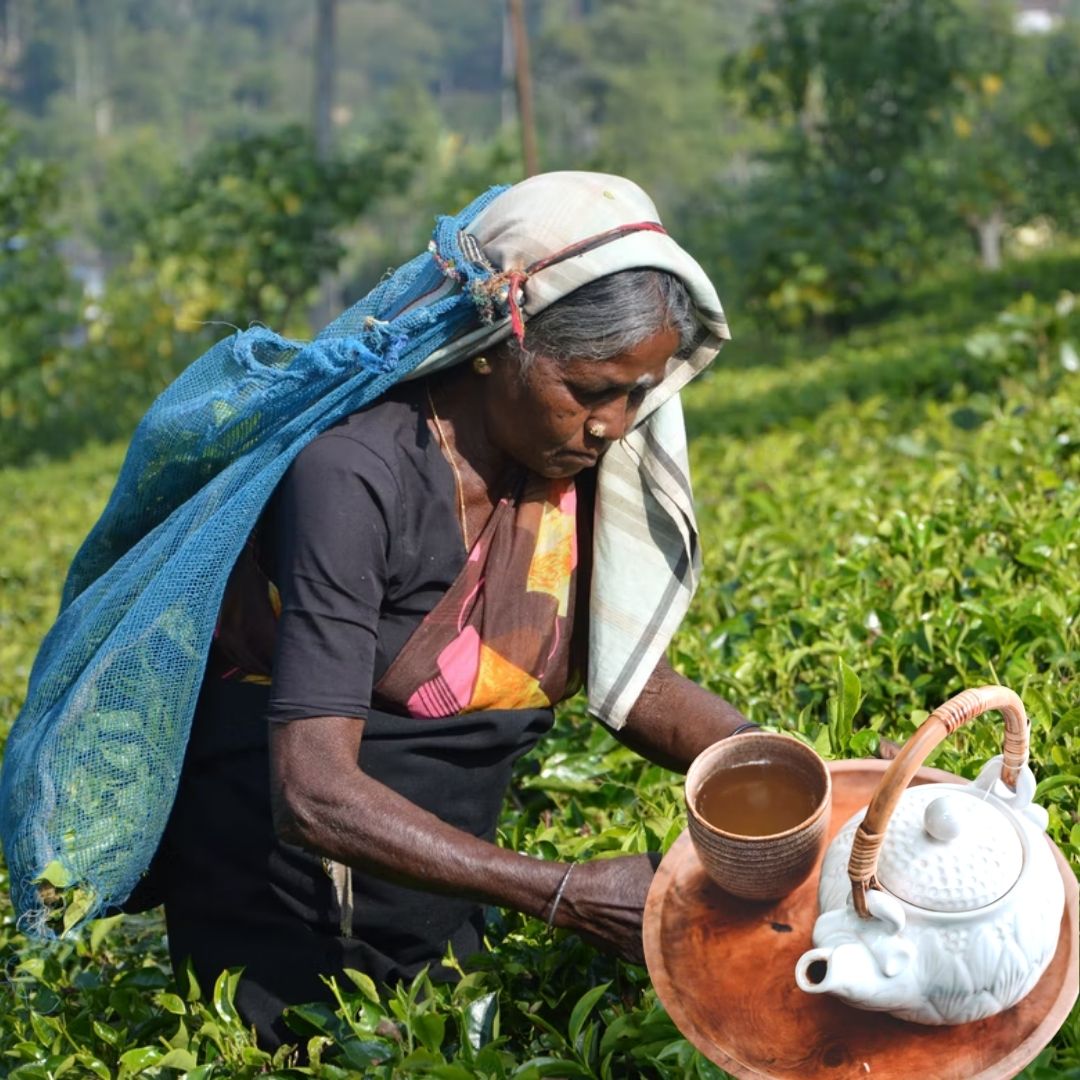International Tea Day: Here's How Britishers Introduced The Beverage, Revolutionised Its Industry In India
Writer: Mrinalini Kaushik
She is a student of journalism, keen on learning new ways to unlearn, deconstructing news and life. Interested in exploring new media as medium is the message. Avid follower of sports and politics
India, 20 May 2022 8:53 AM GMT
Editor : Shiva Chaudhary |
A post-graduate in Journalism and Mass Communication with relevant skills, specialising in content editing & writing. I believe in the precise dissemination of information based on facts to the public.
Creatives : Shiva Chaudhary
A post-graduate in Journalism and Mass Communication with relevant skills, specialising in content editing & writing. I believe in the precise dissemination of information based on facts to the public.
To balance China's tea industry hegemony, the British colonisers started setting up tea plantations around India, introducing tea to India for the first time. Every Indian's lifeline, the' chai', comes from its colonial past.
International Tea Day is celebrated on May 21. Though India is the one that put this day globally, celebrating it for the first time in 2005, Britishers are the firsts who introduced tea to India in the 1800s.
The three main tea of India are grown in Niligirs, Assam, and Darjeeling, having their Geographical Indicator (GI) tags, but the British administration made their discovery and inception.
Assam Tea
The British government wanted to end China's monopoly over the tea industry to balance their trade payments through silver. One of the first tea plantations was set up in Assam, as cited by Teabox.
In 1823, Robert Bruce went on a trading mission to Assam. He met Bessa Gam, a local tribe of Singpho's chief, who gave Bruce samples of tea leaves and seeds for scientific research and examination in Calcutta (now Kolkata). The plant was classified as a tea variety named Camellia.
Assam Tea Company, the first company in India, was set up in 1839, with the business expanding to over 160 tea gardens by the 1860s with five more companies in the game.
Nilgiri Tea
Nilgiri tea is grown around the Blue Mountains in Conoor, Tamil Nadu, at approximately 8000 feet. On a special expedition, Dr Christie conducted meteorological and geological surveys in 1833. Accidentally, he stumbled upon Camellia shrubs similar to tea plants in Assam. He did some experiments with the tea found in Nilgiri alongside the tea from China, however, he died, and the Britishers took over the tea hills to set up tea plantations.
Governor-General Lord William Bentick, in 1835, set up Tea Commission and ordered them to get tea seeds and experts from China. He helped set up the first tea plantation in Ketty Valley, Ooty, as given in the Navrang India.
Darjeeling Tea
A British Army officer, Captain Salmer was known as the pioneer of tea plantations in Darjeeling, West Bengal. He had betrayed the British and was in hiding around the Kurseong area, now known as Makaibari Tea Estate, where he gave life to Darjeeling tea. His assistant, G.C Banerjee, was passed on this legacy, which the Banerjee family still carries.
There is another side to this story. According to the Darjeeling Tourism website, Dr Archibald Campbell, Superintendent of Darjeeling, brought up the possibility of harvesting tea in Kurseong. Salmer supposedly stole the tea seeds from Campbell while he was in hiding.
Every Indian enjoys a cup of tea before they start the day, and in those tea leaves, there are multitudes of history brewing. These stories were just a mere glimpse into how the British revolutionised the tea industry in India.
Also Read: At Least 6 Workers Trapped After Under-Construction Tunnel Collapses In J&K's Ramban
 All section
All section














